Making purchases at Amazon.com and other website funds this website by generating revenue. Any help is appreciated and supports both me and content like this.
Mauviel M250C Copper Skillet Review
Copper Cookware are considered to be the best around. They heat up fast and sear better than either cast iron or aluminum. However, they do have drawbacks. The tin lining wears down and the handles gets hot. Mauviel M250C Copper line of Cookware has none of that. The handle stays cool to the touch and the inner lining is indestructible. However, there are issues to this design. While Stainless Steel is more durable, they are also poor conductor of heat. The handle design is a good idea but once you start using it, other issue arises. This review will look at how the Mauviel M250C Copper Skillet put a twist on the classic french cookware.
Mauviel M250C Copper Skillet Review Quick Summary
| Categories |  |
|---|---|
| Performance | Excellent |
| Colors | Polished Copper |
| Brand Awareness | Europe and America |
| Weight | 1851 g |
| Helper Handle | No |
| Pouring Lip | No |
| Thoughts | The best copper skillet on the market. The low sides promotes evaporation and makes flipping food with a spatula easy. The solid copper construction will sear food better than any pan out there. Finally, the stainless steel lining will ensure that this pan will last a lifetime. |
| Reviewed Cookware | Mauviel Copper Frying Pan (Stainless Steel Lined) |
Mauviel 150 vs 250
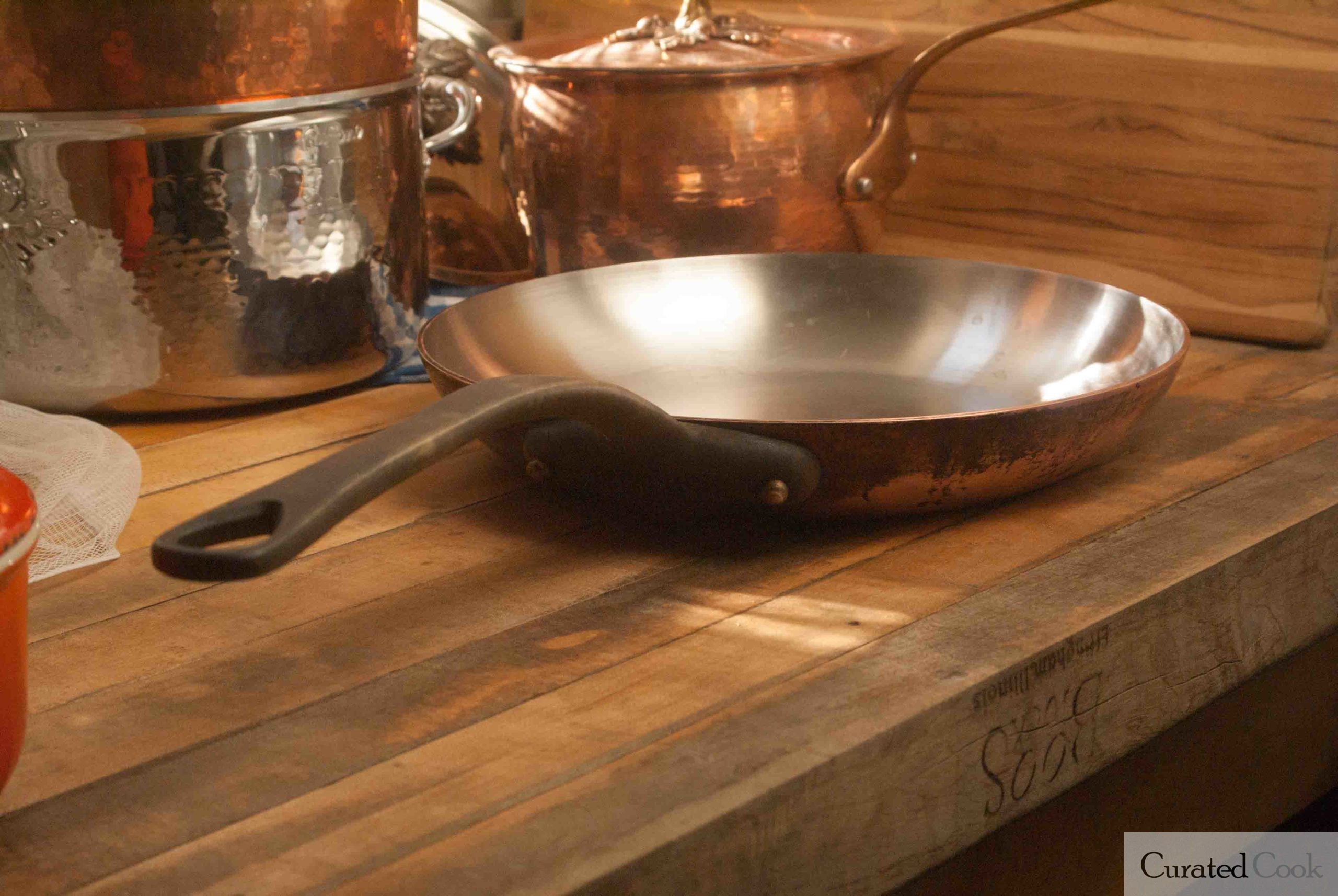
The difference between the m150 and the m250 line is copper thickness. The m150 has a thickness of 1.5 mm and the 250 has a thickness of 2.5 mm. 1.5 mm copper cookware are regarded as Table Service Grade cookware. They are used by waiter/server who cook for guest at the table.
Thicker copper cookware are used for the back house chef, where performance really matters. They generally hold more heat and have a more well distributed heat pattern.
There are some advantage to thinner copper cookware that most people overlook. A thinner copper pan heats up faster and its actually better for boiling water. This also means it responds better to heat changes. I actually prefer thinner pans when I create delicate sauces.
Thickness also matter less when you bake food like in a Gratin. So even though 3mm thick copper cookware are desired by collectors, they arent necessarily the best.
Design
Mauviel M250C vs M250B a History of Handles
Traditionally, French Copper Cookware comes with two type of handle, Brass and Cast Iron. Some claim that a Brass handle means that it is a consumer grade and that cast iron is meant for professional. In my experience, this is not true at all. I have copper cookware with both brass and cast iron handle that are thicker than 3mm. These were cookware that was used in Grand Hotels in France.
The type of handle you choose should be more of a personal preference. Both handles get hot, with brass being the worse of the bunch. I personally like both, they each have their pros and cons.
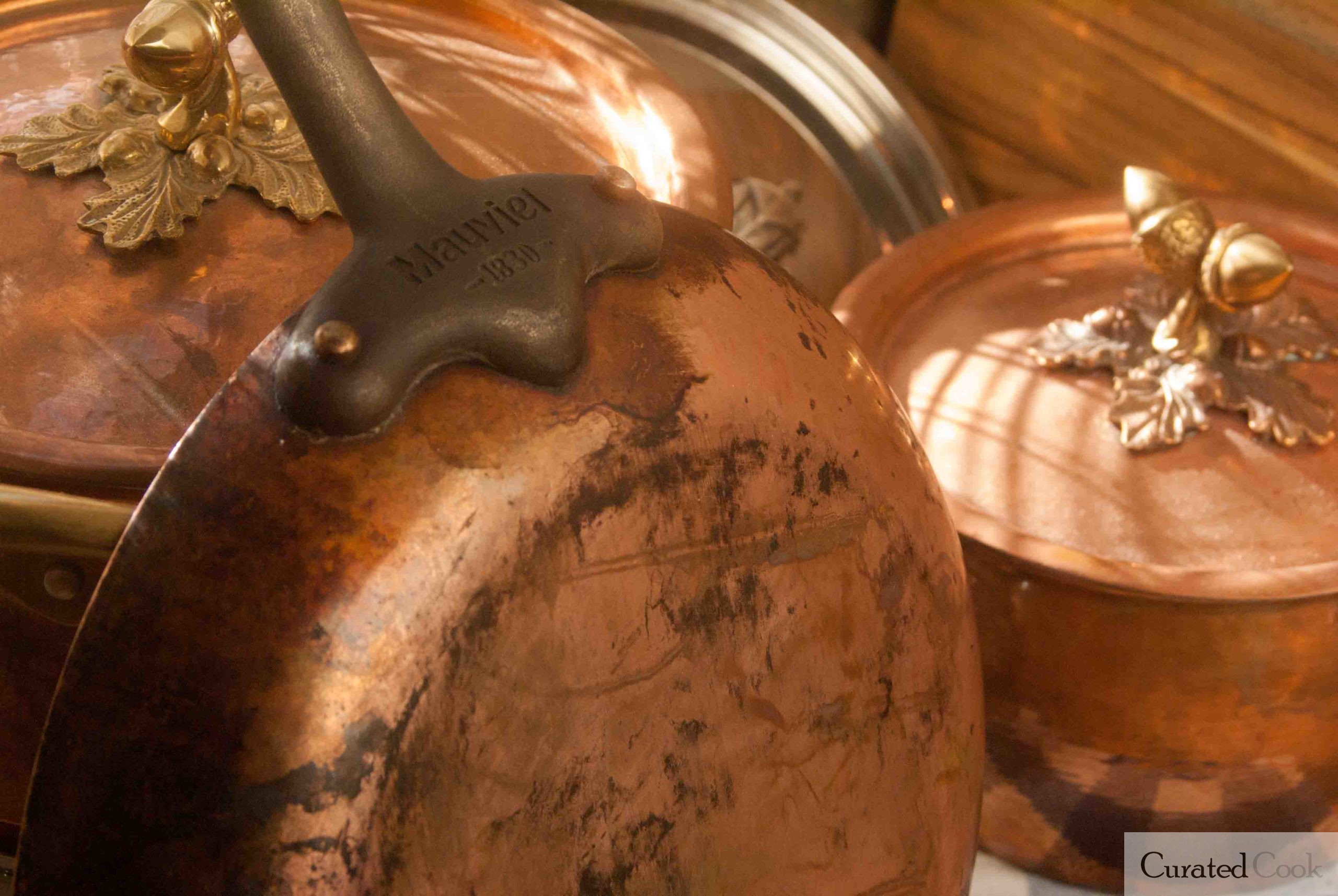
The handle on Mauviel M250c is stainless steel electroplated black handle. This makes it looks like its cast iron when its not. While this may sound good in theory, the execution was pretty poor. After a while, the black coating wears out. Interesting enough, the base color of the handle is gold. I do not know if this was intentional but it is definitely unexpected, I thought it would be silver. Overtime, you will get a a black and gold patina color.
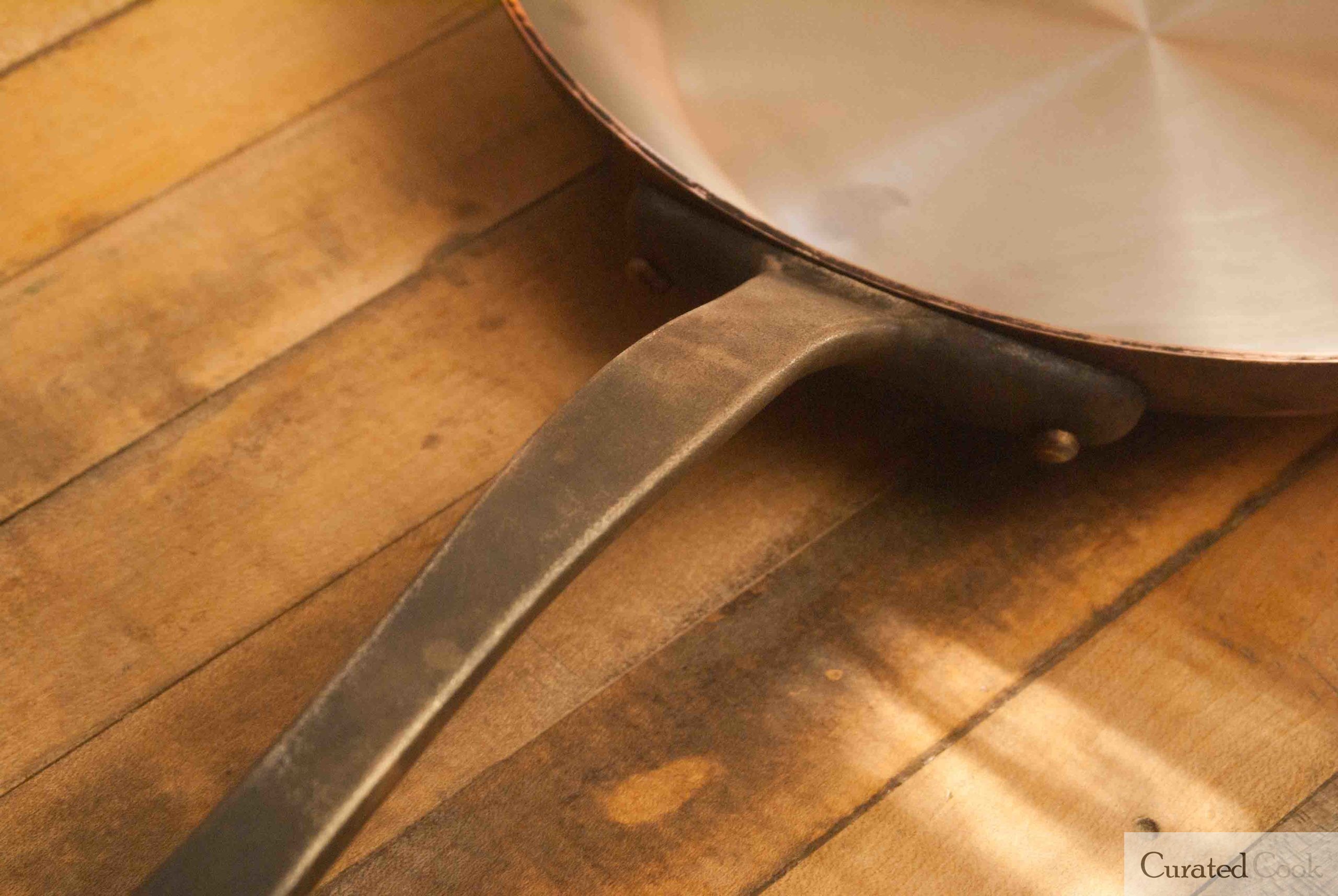
The M250b looks just like a traditional brass handle. It shares the shame shape but with a different logo. On the m250b, its just a round M. The m250c has Mauviel 1830 engraved onto it.
A Note about Rivets
You can usually identify the lining of a copper pot by its rivet. Usually, when you have copper rivets, those pots are lined with Tin. Cookware with Stainless Steel rivets means that its made with stainless steel lining.
Copper rivets can and will become loose overtime. If you send it in for repair, Tin Smith will hammer the rivet making it flat. Which is why you see some copper rivets that look like pancakes…
Older models of Mauviel cookware use three rivets. Newer modern pans uses only two rivets. I assume they did this to save money. In its place, now you get a logo… A step backward in my opinion. The good thing is that I have not notice my handles getting loose.
Angle and handle Ergonomic
The angle of the handle is slightly raised and bent to make it parallel. I find that at this angle, it causes strain to my wrist. A handle that is tilted upward slightly will give you the best leverage. The traditional cast iron design are better, its a wonder why they changed it.
Traditional French Skillet Shape
Older models of Mauviel Pans have a sharply angled sidewall with a rolled lipped. The m250c copper skillet has a more gentle slope with no rolled lip. It resembles that of a traditional French Skillet. While its easy to cook in, I suspect this was mostly done to save cost. If only they added a rolled lip, it would be a much better design.
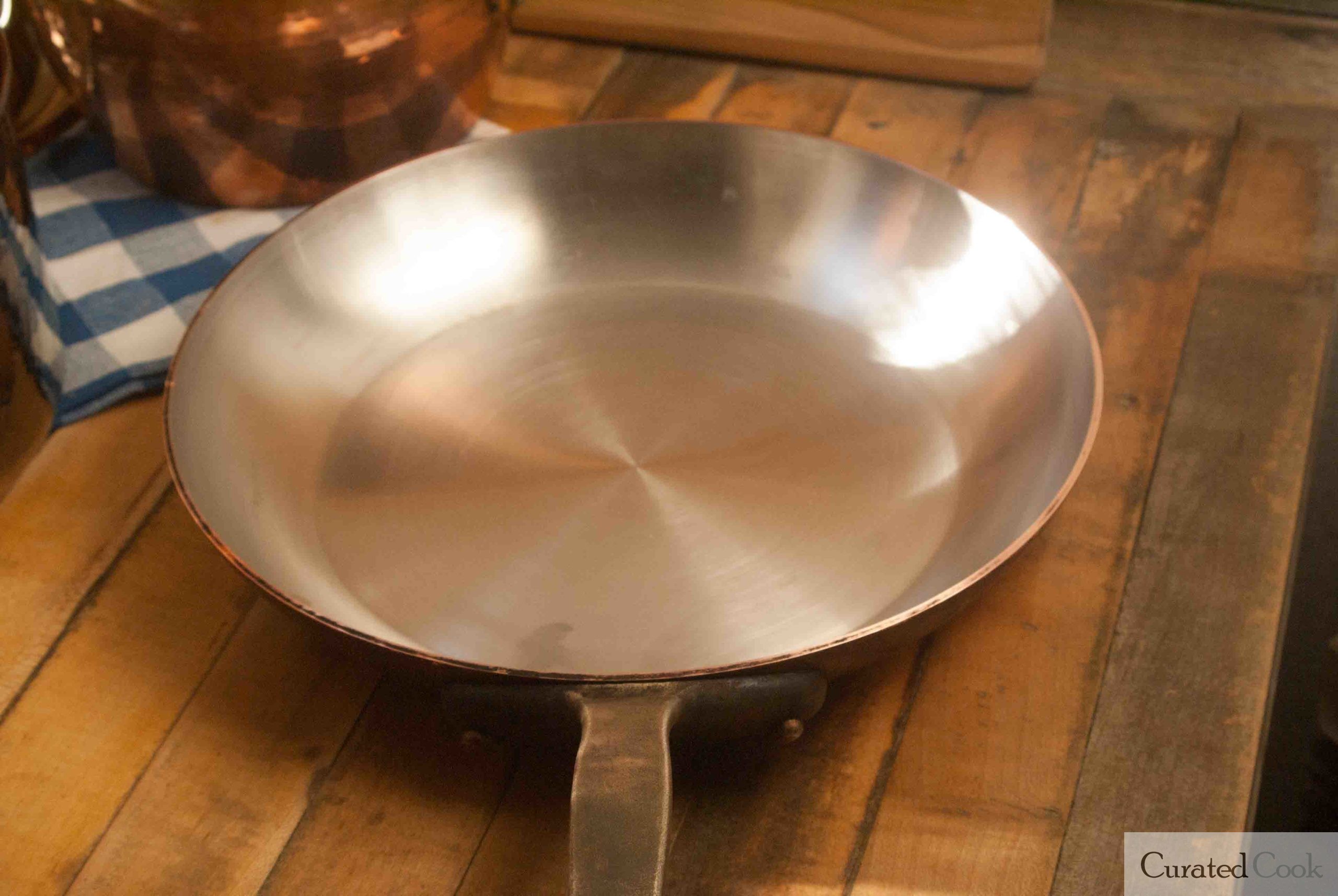
Mauviel M250C Copper Skllet Thickness
The thickness of sidewall comes in at around 2.4-2.45 mm. The sheet that they used is probably 2.5 mm and got stretched out a bit. Nevertheless, at this thickness its heavy enough to store heat and thin enough to be responsive. Its my go to pan for searing steak and creating sauces.
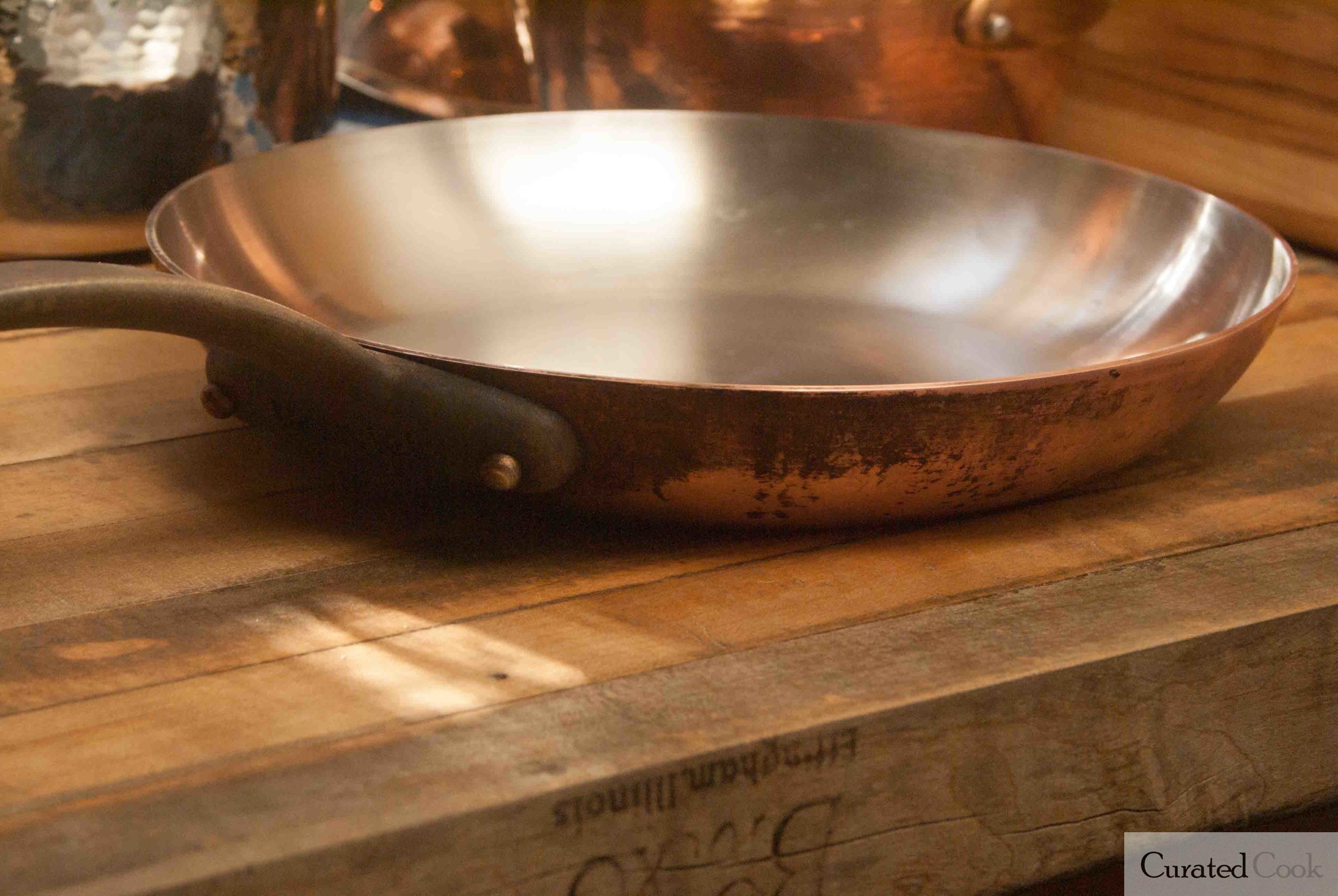
Specs
Note:These measurement are done by me with the tools that I have on hand. The manufacturers have their own measurement guidelines and that should be assumed to be accurate. What I find on this review can vary widely due to several factors, such as ambient temperature, location, water, tool calibration, stove btu, etc..and should only be considered as my opinion.
Weight:1851 g
Rim Width:Around 10.3 inch
Base Cooking Surface:7.25 inch
Height: Around 1.7 inch
Thickness: 2.45-2.40 mm
Mauviel M250C Copper Skillet Performance Test
To test the how well it distribute heat and how well it heats up, I perform a toast test where I place a piece of toast in the center than weight it down with a meat pounder. I heat up the pan for a total of 2 min then see the color of the toast.
Below you can see how the test was performed.
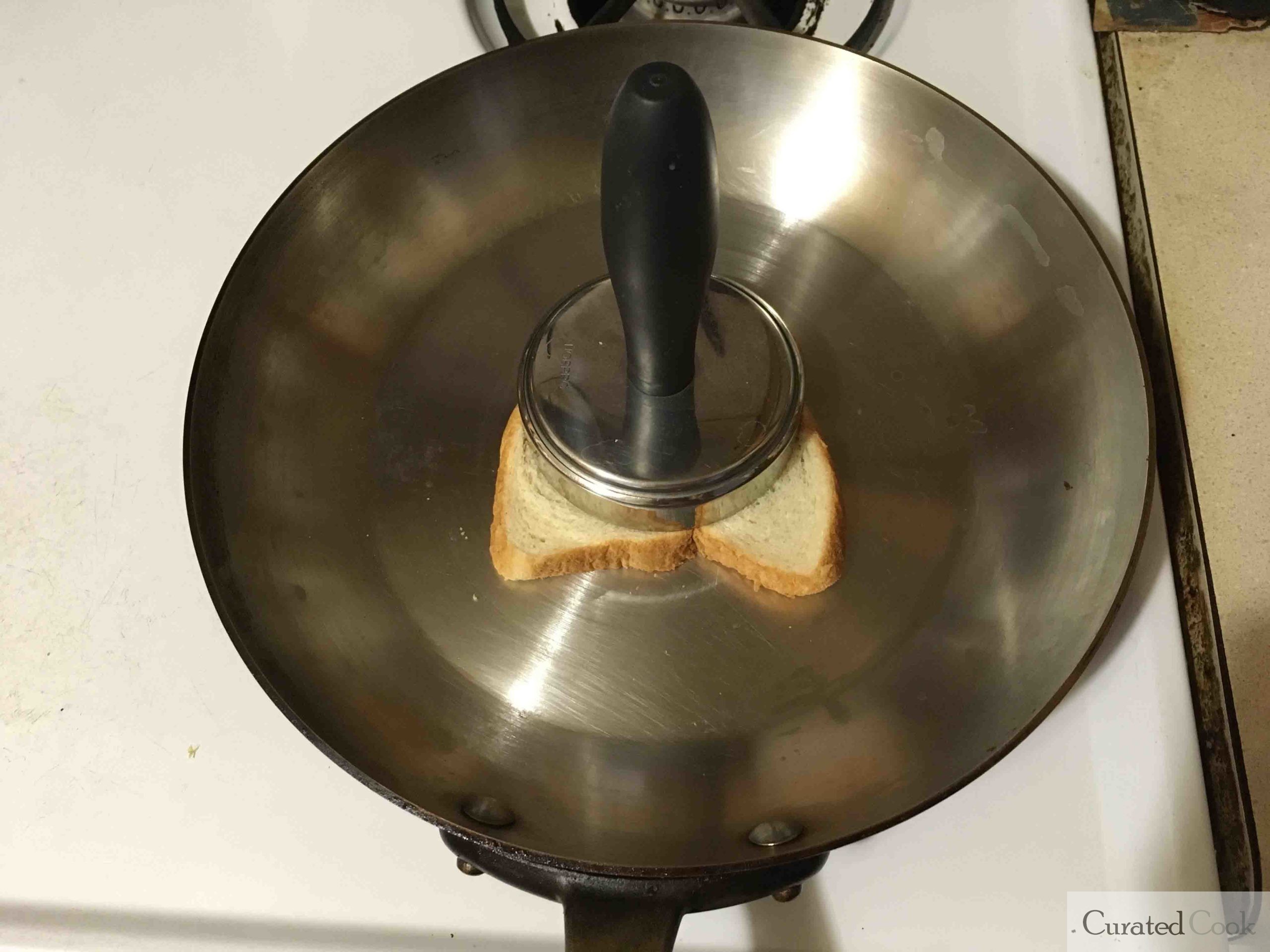
The results are very good. The color on the toast is perfectly uniform. Meaning that the heat distribution on it is perfect. At the 2 minute interval, the shade of the toast is pretty moderate, meaning that it heats up fairly quickly. As a frying pan, Mauviel seems to have a hit a home run with this skillet.
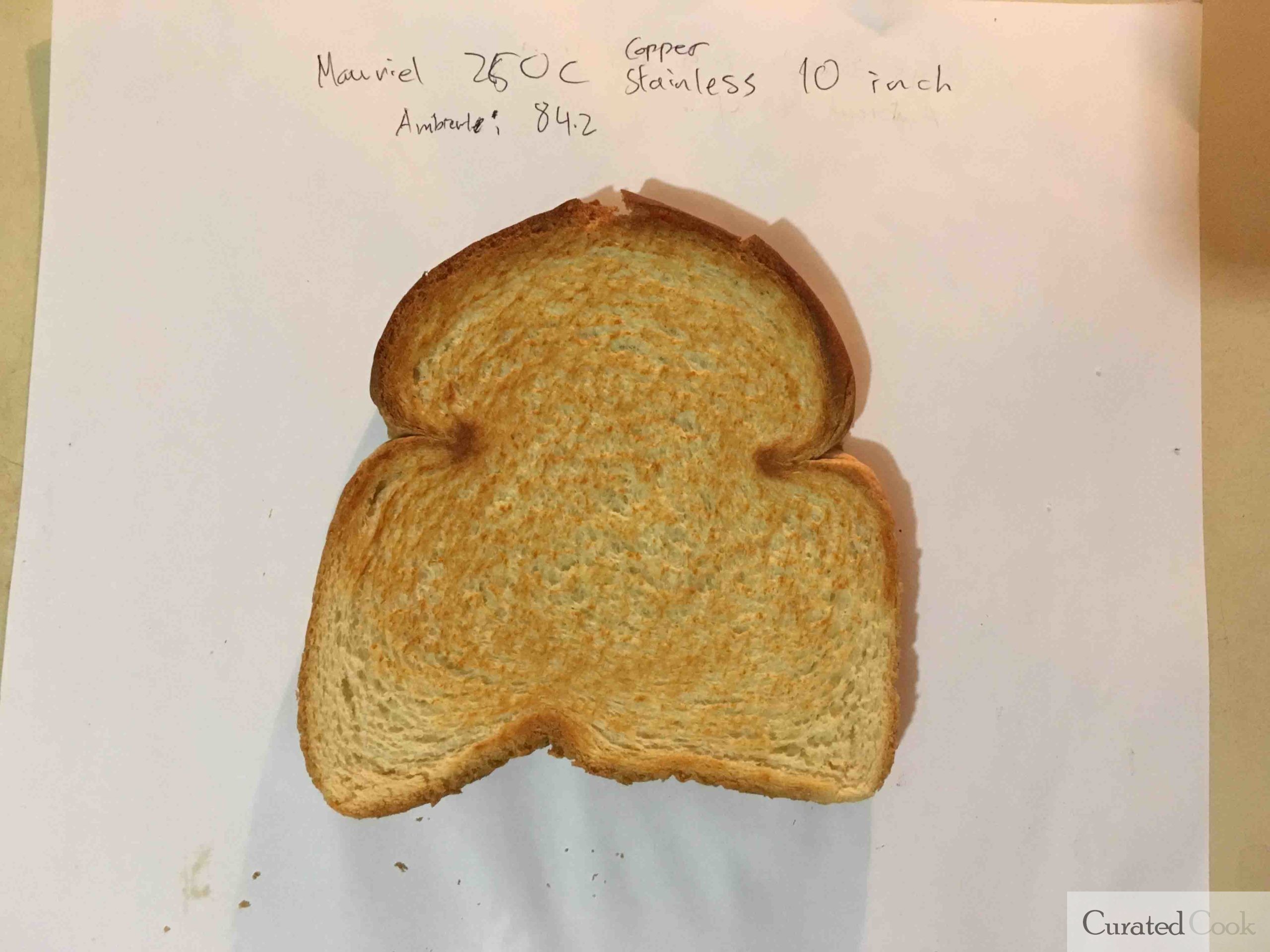
To give you a comparison with Falk, their skillet performed well but it was not as even as Mauviel. The picture below, you can see that it is slightly more blonde on the bottom portion.
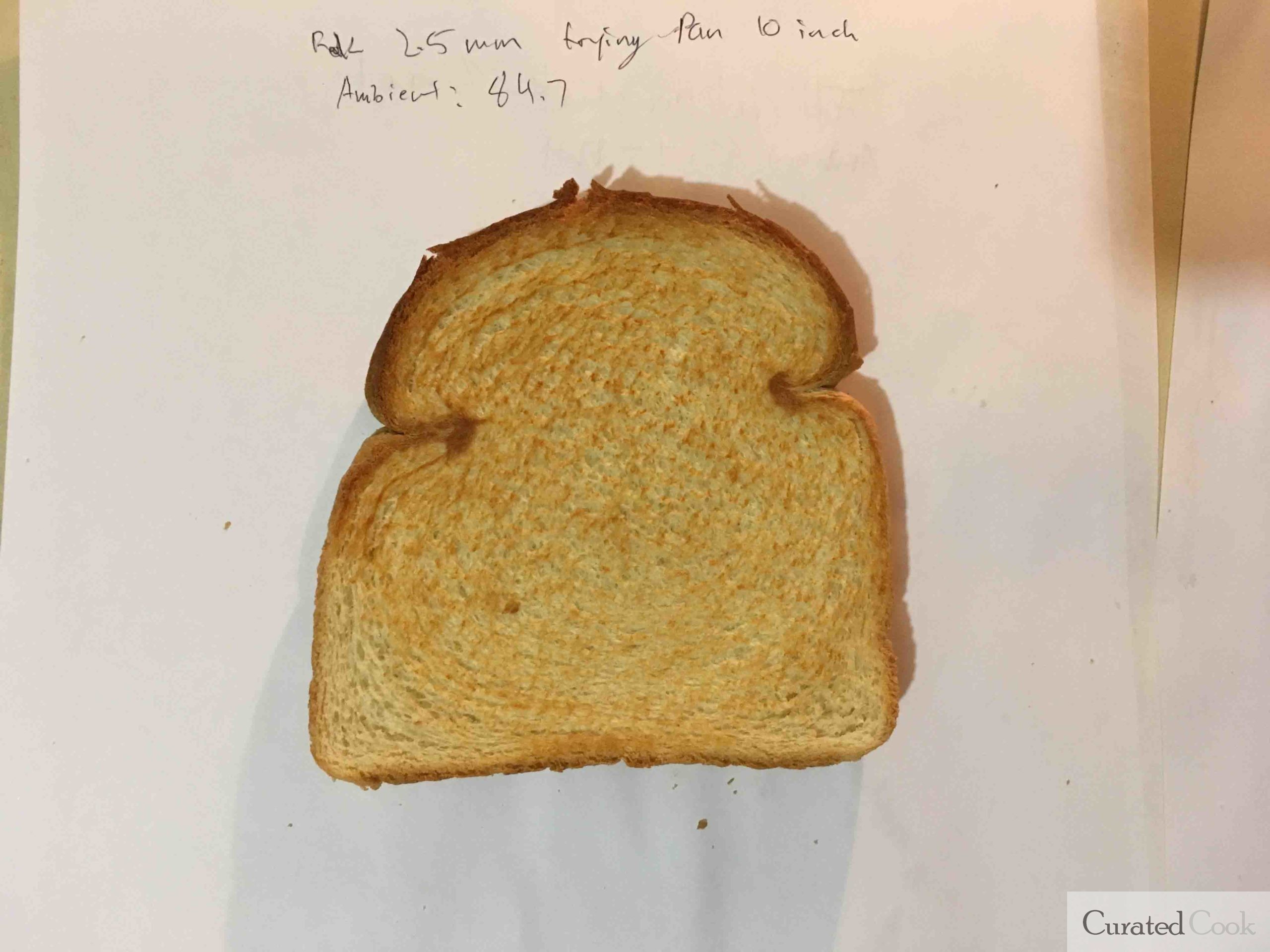
The weight of the two skillets are also pretty similar, only a 50 gram difference between the two.
To see the cookware in action, check out a demonstration that was done by William Sonoma.
Conclusion
Overall, Mauviel M250C Copper Frying Pan is an excellent pan. It heats up quickly with a near perfect heat distribution. The handle stays cools to the touch and it looks like cast iron. However, it will wear down with use. In my experience, this is the Best Pan to sear food like Steak. While it may be a little more expensive than other pans, its well worth the investment.
I hope you like this Mauviel M250C Copper Skillet Review, If you would like to see more, please visit our Pots and Pans Review page.

Best Frying Pan for Steak - Cast Iron is great but its not the Best!
December 15, 2019 at 10:18 pm[…] the Best Frying Pan for Steak is my Mauviel M250C copper pan you can read my full review here. My stove top range does not output as much heat as other professional range. If you have a […]
Matfer Bourgeat Copper Frying Pan Review - Curated Cook
January 5, 2020 at 1:58 am[…] flip food. A high sidewall will make it just difficult to reach under the food. In this instance, Mauviel m250c skillet is actually a better designed pan. It promotes more evaporation and lets you flip food […]